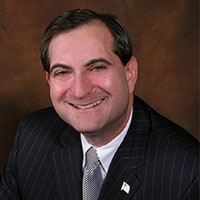Ridley Park Estate Lawyer, Pennsylvania
Sponsored Law Firm
-
 x
x

Click For More Info:
-
Levine Law, LLC
22 E Grant St New Castle, PA 16101» view mapEstate and Real Estate Law 3rd Generation Law Firm
Levine Law aims to create the most direct, simple, and common sense approach to achieve the client's desired end result.
800-711-7881
Gary Stewart Seflin
✓ VERIFIEDEstate Planning, Personal Injury, Wills, Real Estate, Power of Attorney
With nearly 30 years experience handling delicate legal matters, Gary Stewart Seflin provides the sophistication and successful results of a large fir... (more)
Harris Jay Resnick
✓ VERIFIEDEstate, Elder Law, Wills & Probate, Power of Attorney
Mr. Resnick concentrates his practice in the areas of Guardianships and Disability Planning, End of Life Legal Issues, Special Needs Trusts, Medicaid ... (more)
FREE CONSULTATION
CONTACTLeslie J. Rase
Bankruptcy, Consumer Protection, Estate Planning, Family Law, Real Estate
Status: In Good Standing
FREE CONSULTATION
CONTACTDeborah M. Truscello
Workers' Compensation, Personal Injury, Divorce, Wills, Slip & Fall Accident
Status: In Good Standing
FREE CONSULTATION
CONTACTGregory J. Spadea
Estate Planning, Criminal, Real Estate, Divorce & Family Law, Accident & Injury
Status: In Good Standing Licensed: 25 Years
FREE CONSULTATION
CONTACTDawn Getty Sutphin
Estate Administration, Gift Taxation, Estate Planning, Guardianships & Conservatorships
Status: In Good Standing Licensed: 35 Years
Richard M. Heller
Real Estate, Wills & Probate, Power of Attorney, Dispute Resolution, Construction
Status: In Good Standing
Linda Anderson
Commercial Real Estate, Medicare & Medicaid, Trusts, Elder Law
Status: In Good Standing
 Brian Levine New Castle, PA
Brian Levine New Castle, PA Practice AreasExpertise
Practice AreasExpertise


